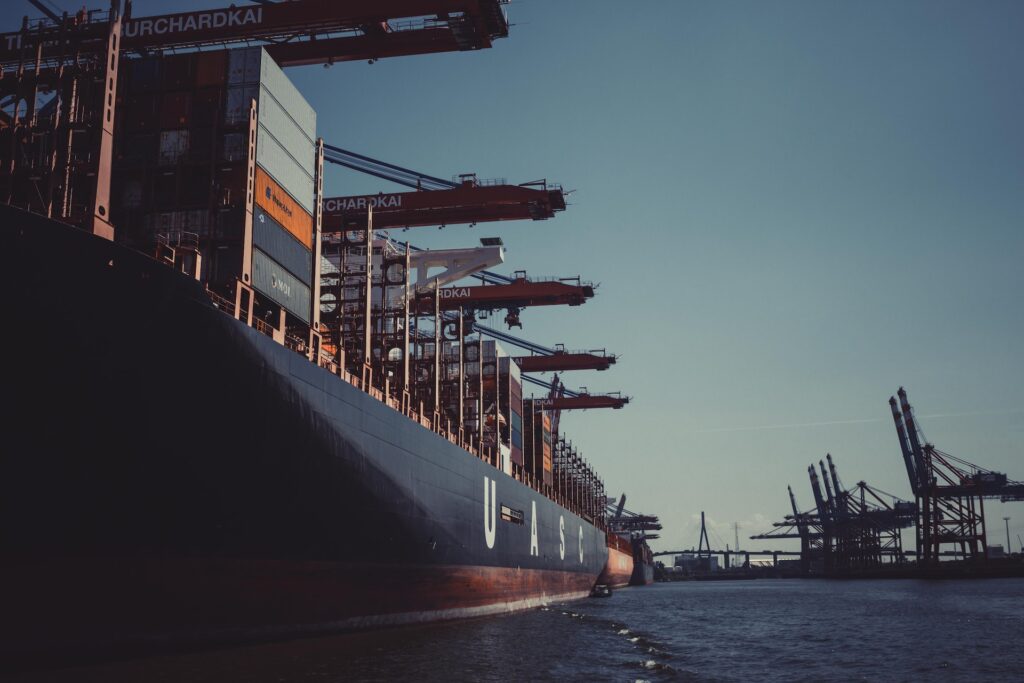
Resin-bonded surfacing is one of the choices that offer an attractive appearance of beautiful textures such as natural stone or gravel, and it has been increasing in popularity, commercially and domestically. In this article, we will talk about why you should get resin-bonded surfacing for your marine business.
Before we start, it is essential to note that reliable resin-bonded surfacing suppliers are crucial, as they determine the final quality of the resin-bonded surfacing. A good supplier will ensure that proper installations are conducted and ensuring that the surfacing works as it should.

What Is Resin Bonded Surfacing?
For a variety of surfacing applications where a beautiful surface with good anti-slip qualities is required, resin-bonded surfacing is excellently appropriate. It has become increasingly popular for driveways and patios, as it is also widely used in the commercial sector for use on car parks, footpaths or even marine and bridge applications. It is a market leader for areas that call for a simple solution with strong slip resistance.
However, its usage is not restricted just to outdoors; it is as ideal for interior uses as well such as stairwells.
Why Should You Get Resin Bonded Surfacing?
Resin bonded surfacing offers a wide range of benefits, which includes, but is not limited to:
Resin Bonded Surfacings Are Very Durable
With regular exposure to seawater, UV radiation, and considerable foot traffic, marine conditions may be harsh. The high durability and robustness of the resin-bonded surface make it ideal for maritime applications. The resins form a solid connection with the surface, avoiding peeling or cracking. It can bear enormous loads, survive wear and tear, and withstand saltwater’s corrosive effects, assuring long-lasting performance even in difficult maritime situations.
Resin Bonded Surfacings Increases Your Safetiness
Any marine business must prioritise safety, and resin-bonded surfaces can be extremely helpful in fostering a safe working environment. Resin bonded surfacing’s textured surface provides high slip resistance, lowering the likelihood of accidents brought on by slippery surfaces. This is crucial in places where water or moisture could lead to danger, such as docks, gangways, and boat decks. Resin-bonded flooring improves safety for both workers and visitors by giving a solid grip underfoot, inspiring confidence and peace of mind.
Resin Bonded Surfacing Is Easy To Maintain
Spending too much time and money on maintenance is the last thing you need in a busy maritime industry where time is money. Because resin bonded surface requires less maintenance, it is a good option for your company. The non-porous surface reduces the need for regular cleaning by preventing the growth of moss, weeds, and algae. The surface may often be kept clean and well-maintained with routine sweeping and periodic pressure cleaning. This simple cleaning routine creates a continually pleasing atmosphere while allowing you to concentrate on other crucial facets of your maritime business.
How Long Do I Need To Wait After Installing The Surfacing?
Well, it depends on factors such as how big of a surface are we covering. The first step after installing a resin driveway is to wait for it to firm up. Surfaces made of resin have a hard layer applied to them, making them resistant to freezing conditions. The cool thing is, that the coating won’t degrade since water can’t get through it. Oil spills may weaken the resin and erode the surface, but they won’t change the driveway’s appearance in general.
You must wait at least 24 to 48 hours after installing a resin-bound system for the driveway to harden. Applying the resin at a depth of 18mm will ensure that the surface has enough tensile strength.